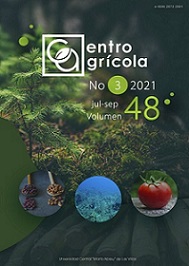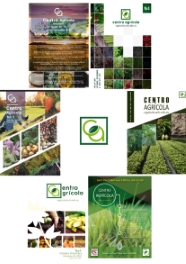RESEARCH ARTICLE
Calculation of carbon sequestration and soil fauna associated with Moringa oleifera Lam. in living fences
Evaluación de la retención de carbono y la fauna edáfica en asocio con Moringa oleifera Lam. en cercas vivas
Oscar Loyola Hernández1, Arelys Valido Tomes1, Delmy Triana González1, Isael Pérez Cabrera2, Idania Yero Pino1, Dania de la Caridad Gonzáles Gort1
1-Departamento de Agronomía, Universidad de Camagüey, Carretera de Circunvación km 5½, Camagüey, Cuba, C.P. 74650.
2-UCTB Estación Experimental Agroforestal Camagüey, Avenida Ignacio Agramonte No. 178, Camagüey, Cuba.
E-mail: This email address is being protected from spambots. You need JavaScript enabled to view it.
ABSTRACT
This study was completed under edaphoclimatic conditions in Camagüey during one year. The objective was to determine the carbon retention and the soil fauna associated with Moringa oleifera Lam, used for living fences, specifically a one-year-old fence, built on a typical brown soil without carbonate. The approximate carbon sequestration and the soil fauna associated with the species were calculated. The results indicated the advantages of using M. oleifera for living fences, due to their positive environmental effect when sequestring high levels of carbon dioxide (the carbon stored by this species is of 68 kg/a, which is closely equal to 45,35 t of C/km), and they also create a favorable environment for soil fauna. In the assessed period, the worms and the coleopterons were the main groups found, which are also important for maintaning a healthy ecosystem.





